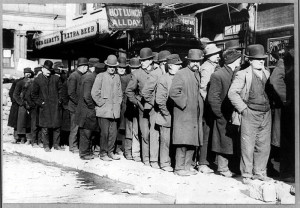
Bob Goss, founder of the Law Office of Robert B. Goss, P.C.
Robert B. Goss is a Veteran, attorney, and the founder of the Law Office of Robert B. Goss, P.C. Bob, as he prefers to be called, started his law firm in response to the need he saw for a level playing field between Veterans and the government system intended to provide benefits to Veterans. Recently, I had an opportunity to discuss with Bob some of his thoughts on how Veterans can be better served. The following is Part II of a two-part conversation.
Eleanor Meltzer: Bob, I know Veterans can contact you directly. What recommendations do you have for Veterans who are struggling to obtain benefits?
Robert Goss: “Don’t wait to contact me.” I hope everyone reading this interview tells their active-duty friends the following: if you are just leaving the service, make the service give you a physical. Once you leave service (and are now a Veteran), claim ALL your disabilities. For instance, a paratrooper most likely is going to have orthopedic issues, tinnitus, hearing loss. Depending on the individual, there may be other service-connected traumas such as PTSD and burn-pit related injuries. FILE WITHIN THE 1ST YEAR after leaving the service. Why? Because then your benefits go back to the day after separation. If a Veteran has been out longer than a year, they still need to file. The sooner the better. Continue reading
 The 2010 Census offers unique insight to U.S. Veterans. Over 835,000 Americans are Veterans who served during both Gulf War eras. Almost 50,000 more American Veterans served in Vietnam era and both Gulf War eras. This means the United States has almost 1 million Veterans potentially suffering from serious service-connected injuries.
The 2010 Census offers unique insight to U.S. Veterans. Over 835,000 Americans are Veterans who served during both Gulf War eras. Almost 50,000 more American Veterans served in Vietnam era and both Gulf War eras. This means the United States has almost 1 million Veterans potentially suffering from serious service-connected injuries. Military Veterans' Lawyer Blog
Military Veterans' Lawyer Blog








